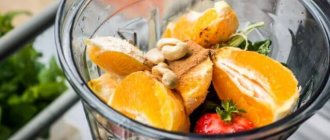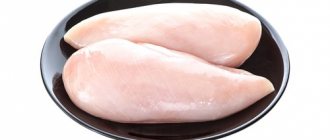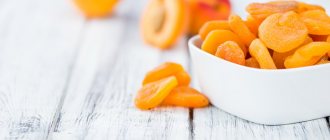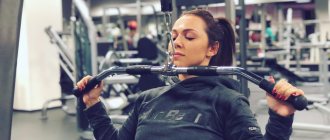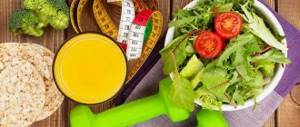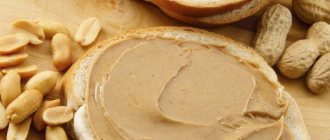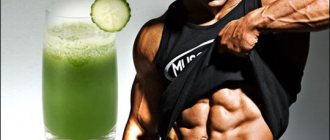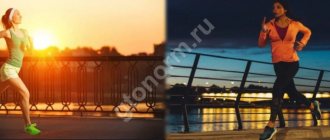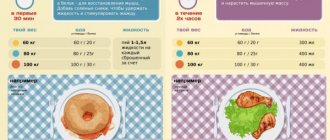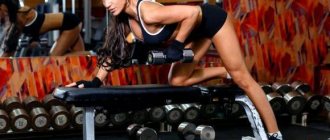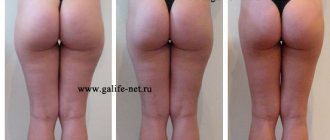Nutrition after sports activities
If you've worked hard physically but haven't eaten for 5 hours, your blood glucose levels drop so much that exercise becomes too much. Even if there are no obvious painful sensations, it still negatively affects endurance and the ability to concentrate during exercise. Try to eat within two hours of finishing your class. If exercise suppresses your appetite, snack on something high in carbohydrates as soon as possible. Here are a few dishes that are ideal for this: oatmeal cookies, fruit cake, pasta with vegetables, fish or chicken, baked potatoes with low-fat seasoning, boiled rice and sweet corn salad, fruit salad with oatmeal, vegetable stew.
Carbohydrates are digested at different rates, so your blood sugar may rise slowly or quickly.
Starch contained in potatoes, bread and rice releases its energy slowly, and simple carbohydrates contained in jam, honey, fruits, and juices quickly.
“High-energy” foods (raisins, bananas, honey, jam, glucose, candy, chocolate, sweet cookies, as well as rice, bread, sweet corn, potatoes, beans) are best consumed before exercise; moderate-rate foods (pasta, oats, sweet potatoes, oatmeal, grapes, orange, oatmeal cookies) that increase sugar levels - immediately after exercise; and “low-speed” (milk, yogurt, ice cream, apples, plums, grapefruits, dates, figs and legumes) even later.
Homemade Sports Nutrition Recipes
The most popular among athletes are instant protein shakes, which not only saturate the body with proteins, but are also vitamin bombs due to the abundance of fruits and berries. Preparing healthy cocktails is within the power of anyone who wants to switch to proper nutrition.
For the cocktail you need:
- 500 g milk;
- 1 raw egg;
- 100 g cottage cheese;
- 250 g of fresh berries or fruits.
Protein shakes for sports
For variety, you can make the following variations of the energy drink:
- 350 g milk, 50 g honey and 1 banana;
- 250 g milk, 30 g cream, 1 banana, 3 tbsp. jam;
- 250 g milk, 200 g cottage cheese, a handful of berries;
- 500 g milk, 1 apple, 1 banana, 50 g honey;
- 500 g milk, 100 g natural yoghurt, 1 tbsp. flax seeds, 100 g strawberries, 0.5 tbsp oatmeal, 1 banana;
- 250 g milk, 3 tbsp. fruit syrup, 1 raw egg.
In winter, you can use frozen berries or jam.
In winter, you can use frozen berries
For training, you can take a homemade isotonic drink, which will suppress drowsiness and lethargy. To do this, you need to mix the following ingredients:
- 2 liters of mineral water;
- 50 g honey;
- lemon juice;
- 10 drops of ginseng alcohol tincture.
For snacks on the go, you can use energy bars for protein boost. Making them won't be difficult. The bar can include chocolate, honey, sunflower seeds, walnuts, peanuts, dried fruits, and oatmeal. You can also add a couple of tablespoons of purchased protein or creatine powder to the prepared mixture for greater effectiveness.
For snacks on the go for protein boost, you can use energy bars.
To prepare the bars we use the following ingredients:
- 200 g oatmeal;
- 200 g corn flakes;
- 200 g peeled sunflower seeds;
- 50 g raisins;
- 50 g sesame seeds;
- 50 g walnuts;
- 100 g low-fat cottage cheese;
- 3 tbsp. peanut butter.
All ingredients are crushed and mixed. The resulting mass is placed on a rimmed dish covered with cling film. If the mixture is very thick, then milk can be used for dilution. After 3 hours in the freezer, the protein layer is cut into separate bars, which are eaten with milk.
Don't forget about vitamin salads. Homemade sports nutrition is impossible without vegetables and herbs, supplemented with boiled eggs and pieces of lean meat. Prepared salads are seasoned with olive or linseed oil. You can also use a mixture of vinegar and lemon juice.
Spices deserve special attention. Don't limit yourself to salt and sugar. Ginger and red pepper will speed up metabolism and ensure the body's detoxification process starts.
Preparing sports nutrition does not require a significant investment of time, and the results will not be long in coming. Rapid recovery and activation of the immune system will be a pleasant addition to a slim body.
Basic sports menu
An athlete’s balanced menu should be about 30% protein, 60% carbohydrate products. At the same time, protein-carbohydrate foods should remain fatty by a maximum of 10%.
The approximate nutrition of athletes for each day is represented by the following products and includes 2700 kilocalories:
- oat flakes (from 200 g);
- 5 kg low-fat cottage cheese;
- lean butter – no more than 30 mg;
- 5 kg of grain porridge (brown rice, buckwheat);
- fruits and vegetables - 300-400 g each;
- poultry meat – 400 g;
- bread – 200 g.
The basic features of rational nutrition for athletes also lie in the method of preparing the above products:
- sugar and salt may be present extremely rarely in a 10% ratio for the entire daily food intake;
- for light frying, for example, meat or fish, use olive oil, lard or melted vegetable oil;
- Vegetables must be steamed or stewed.
General concepts
- High-quality and healthy diet. Eat foods that are healthy and productive for the body.
- The amount of food eaten, taking into account the goals set, depends on the type of sport, strength activity and desires. For example, to gain muscle mass, consuming large amounts of protein-rich foods (egg and vegetable salads, cottage cheese, beef, sea fish) is of great importance.
- Amount and frequency of food intake. The current diet for athletes is the required weight portion every 3-4 hours. This will not overload the body and will maintain it in a single rhythm.
In the case of burning fat layers, cells and tissue fibers, you should adhere to one selected diet. It could be:
- Standard menu, but enhanced training on a cardio machine, orbitrek.
- Carbohydrate spasmodic. That is, on the first day you need to eat as much as you should, and in subsequent days you need to regulate the amount of carbohydrate and protein components by increasing and decreasing them.
For a male athlete
Nutrition for security athletes, in addition to a simple diet, includes biologically active food supplements sports nutrition. Sports supplements are biologically active components produced specifically for bodybuilders leading an active, strength-based lifestyle.
This is precisely why proper nutrition for male athletes differs from the usual, balanced one. The only thing is that some people prefer to receive sports nutrition along with the food they consume, while others prefer to receive it separately in the form of cocktails.
Indicative diet together with sports supplements for male athletes:
- breakfast: 200 ml of gainer or any other high-carbohydrate shake, 200 g of rice with steamed vegetables and 50 g of bread;
- pre-lunch snack: one protein bar, tea;
- athlete's lunch: 300 g baked potatoes with hard cheese, 200 g stewed beef, salad with low-fat mayonnaise;
- pre-workout: 200 ml whey protein shake, protein bar (protein), 10 g BCAA, 50 g carbohydrates;
- athlete's dinner after training: stewed fish or meat, 500 g of buckwheat or 250 g of brown rice, herbal tea to improve metabolism, 4 tablespoons of avocado;
- second dinner before bed (120 minutes before): 200 g of steamed oatmeal, freshly squeezed juice.
For girls
A diet aimed at female athletes is characterized by its own characteristics, although it differs slightly from nutrition for male athletes. Meals for female athletes should be filled with fiber, fast complex carbohydrates and healthy fats that help you lose weight (monounsaturated).
For a more precise understanding of what foods a female athlete needs to eat in order to eat properly, below is an approximate menu for the day:
- Morning breakfast (before 9:00) – slow-cooked oatmeal (100 g) and 3 egg whites. Additionally, you can drink green tea without sugar.
- From 10:30 to 12:00 you can have a small snack of fruit and yogurt or drink 0.5 liters of low-fat kefir.
- At lunchtime (13:00-14:00) - white poultry or red fish baked in the oven - 200 g, brown rice - 150 g and fresh vegetable salad with olive oil.
- Midday snack (around 16:00) – nuts with 200 g of cottage cheese.
- Dinner – fruit lean salad and fish or chicken fillet – 200 g.
- Second, before bed, dinner - 0.5 liters of kefir.
The menu is prepared for the week, month, and so on.
Vitamins for nutrition and sports
Proper nutrition when playing sports necessarily implies receiving a whole complex of all vitamins, nutrients and minerals. Ideally, of course, we should get all this from our diet, but if the season of the year does not allow us to eat a varied diet, then you can always add multivitamins to your diet. There are many good complexes that contain the necessary nutrients and minerals.
First of all, pay attention to the content of vitamins A, B, E, C and D. Minerals must include potassium, calcium, phosphorus, iron, magnesium
You can also consider the following options for nutritional supplements:
- Omega 3. Polyunsaturated fatty acids, which nutritionists definitely recommend including in your diet when losing weight.
- L-carnitine. This supplement helps quickly restore strength after exercise, reduces muscle pain and even suppresses hunger.
- Coenzyme Q10. Stimulates energy production and improves metabolic processes. In addition, this substance slows down the aging process.
Recommendations for losing weight and burning subcutaneous fat
- To lose weight, consume more calories than you get from food. For example, you consume 1500 calories per day, exercise 3 times a week, and your weight remains the same, which means that to lose weight you need to reduce the number of calories by 100-200 per week and see the result. If your weight decreases by 500 - 1000 grams per week, then it is good for you and for your health. You can stay at 1500 calories per day, but then you will need to burn more of them and the intensity of your cardio training will have to increase. It will be necessary to increase the time spent exercising on an exercise bike, treadmill, etc.
- Many athletes want to look good in the summer or while traveling to warm countries. To lose weight and burn subcutaneous fat, you must follow the following recommendations for 1 month. Proteins 2 grams per 1 kg of your weight, fats 0.5 grams, leave complex carbohydrates in your diet and make 1 gram per 1 kg. In 1 month you will burn all subcutaneous fat and look great.
- To lose weight, you need to recover well and consume vitamins and nutrients. After all, the body is under stress during drying or losing weight, because there are not enough nutrients in the form of energy (carbohydrates). Therefore, additionally buy vitamin complexes at a pharmacy or sports store and take them according to the instructions.
https://youtube.com/watch?v=-YSuLTXMVcU
VseProZdorovie.ru
Proper nutrition for athletes is the key to success and athletic achievements. The basics of rational nutrition help you create a menu for the week and for every day. The diet of athletes should help prepare for competitions and restore strength after performances. Selection of nutrition is impossible without knowledge of physiology and dietetics.
Features of nutrition for athletes
The main principles of sports nutrition include usefulness. At the same time, do not forget that homemade food should also be tasty. Depending on the purpose of training, nutrition also varies. Adherents of working with iron, which requires significant energy expenditure and increased endurance, should have proteins at the core of their sports diet. A nutritional system enriched with protein foods will promote rapid recovery and muscle growth. It is necessary to supplement protein with vegetable fats, which are quickly absorbed by the body and are not stored in fat reserves. For this purpose, experienced bodybuilders often prepare sports gainers. The basis of the cocktail is milk with a fat content of 2.5%. If you are lactose intolerant, milk can be replaced with natural, freshly prepared fruit juice.
You also need to buy low-fat cottage cheese. The main thing in products is the amount of protein, not fat. Do-it-yourself sports nutrition has high taste characteristics. Dark chocolate, an abundance of berries, honey, dried fruits, nuts, lean meat, soy - all this helps to quickly restore vitality after a tiring workout.
Cottage cheese must be purchased low-fat
Basic nutrition rules for an athlete:
- Systematicity. You need to eat every 3 hours. The generally accepted food system (breakfast, lunch, dinner) should be supplemented with snacks. This could be a banana or a homemade protein bar.
- The presence of sweets in the diet. We are not talking about buns, ice cream and cakes. A piece of chocolate, 2 tbsp. honey or a handful of raisins - that’s what the athlete is allowed to eat.
- Control. For greater efficiency, you need to take note of your caloric intake. Before going to bed, you are allowed to treat yourself to an apple or quickly digestible proteins: rye bread, fish and seafood.
Diet diversity is the key to success. Don't stop at one product. The more extensive the menu, the more nutrients will enter the body. You can independently prepare not only the generally accepted isotonic drinks and gainers, but also energy salads, protein bars, and pies.
You need to eat dried fruits and nuts
Proper nutrition menu for athletes
The diet and nutritional regimen of athletes and bodybuilders should differ from the usual diet, since the activities of sports people are associated with heavy loads.
Therefore, three aspects need to be highlighted:
- Quality and completeness of food products. That is, you need to eat foods that are healthy, energy-intensive, and productive for the body
- Amount of food consumed. This or that sport requires a different mass component, so you need to either eat a lot to gain weight, or vice versa, eat little to lose fat deposits
- Number of meals. Namely: it is better to eat in small portions, but often, so as not to fill the stomach before physical activity, maintain the body in the same energy rhythm, and not create heaviness, allowing food to be quickly processed.
Approximate diets for athletes under various regimes and loads
A simple diet is designed for 2600 kilocalories
- Breakfast: two boiled eggs, a package of low-fat cottage cheese, a plate of oatmeal cooked in milk with olive oil, 3 slices of bran bread, a glass of tea.
- Second breakfast: apple and pear, one bun, a glass of low-fat drinking yogurt.
- Lunch: a plate of buckwheat porridge with milk, an omelet of 2 chicken eggs, 180 grams of vegetable salad, 3 slices of whole grain bread, 50 grams of low-fat cheese, a glass of green tea.
- Afternoon snack: 150 grams of low-fat cottage cheese, half a plate of any porridge, except semolina, with the addition of fruits or berries, a glass of juice.
- Dinner: 2 pieces of bread with bran, 250 grams of fresh fruits (vegetables), a cup of kefir.
- An hour before bedtime: one apple and 250 grams of milk.
Enhanced mode for 3500 kilocalories
- Breakfast: an omelet of four eggs, a plate of oatmeal, 2 pieces of toast or bread, one orange.
- Second Breakfast: a glass of low-fat drinking yogurt, 2 bananas, 50 nuts.
- Lunch: 200 grams of boiled beef, 4 medium boiled potatoes, 100 grams of fresh vegetable salad, a glass of tea or juice.
- Afternoon snack: a glass of milk, 2/3 cup of boiled rice, 150 grams of fruit salad.
- Dinner: a portion of boiled fish, 4 boiled potatoes, 120 grams of fresh grated carrots with olive oil.
- A couple of hours before bed: half a plate of oatmeal, four boiled eggs, a glass of milk.
Training day nutrition regimen
- Breakfast: 3 eggs, 2 toasts with peanut butter or jam, a bowl of oatmeal, a glass of milk.
- Second Breakfast: 1 piece of energy protein bar, a glass of tea or a cup of coffee.
- Lunch: 250 grams of mixed vegetables, 0.5 liters of chicken soup, 250 grams of boiled beef, a glass of juice, some dry cracker cookies.
- Afternoon snack: a glass of compote, fruit drink or juice, 1 bun.
- Dinner: 150 grams of stewed fish, 180 grams of boiled vegetables, a cup of tea.
- 1 hour before bedtime: 1 slice of bran bread, a glass of milkshake with bananas.
Diet during intensive training
- Breakfast: a glass of high-carbohydrate sports drink, 180 grams of boiled rice with vegetables, 2 slices of bread.
- Second breakfast: 3 pancakes with condensed milk or honey, 1/4 fresh pineapple, a glass of juice or compote.
- Lunch: a portion of salad with mayonnaise, 6 baked potatoes + cheese, 250 grams of stewed beef.
- Afternoon snack: a glass of a special sports drink with a protein bar
- Dinner: a portion of stewed fish, half a plate of buckwheat porridge, a cup of herbal tea.
- A couple of hours before bed: a glass of juice, 200 grams of oatmeal.
Meals on competition day
- Breakfast: a glass of milk + two buns with raisins, a plate of buckwheat porridge.
- Second Breakfast: one banana, 60 grams of dark chocolate, a sandwich with meat, a glass of coffee.
- Lunch: 0.5 liters of chicken broth, a portion of boiled lean fish, a plate of vegetable stew, 2 pieces of oatmeal bread, a glass of juice or fruit compote.
- Afternoon snack: raisin bun, glass of juice.
- Dinner: 160 grams of chicken stew, 0.5 cups of green tea.
- 2 hours before bedtime: a portion of oatmeal, two pieces of bran bread, a pear and a cup of tea.
Power options taking into account mode and load
If a light exercise regimen is provided, including a daily caloric intake of approximately 3500 kcal, athletes eat as follows:
- morning – 500 g of oatmeal, 4-egg omelette, 2 loaves of bread and an orange;
- 2nd breakfast – nuts, several bananas and yogurt with natural bifidobacteria;
- lunch – 4-6 medium boiled potatoes, 200 g boiled beef tongue, 200 g vegetable salad, juice;
- afternoon snack – boiled brown rice with milk (1 glass), fruits or vegetables – 150 g;
- dinner – 4-6 potatoes, carrot and olive oil salad – 200 g;
- dinner before bed – 250 g of steamed oatmeal, an additional glass of milk.
This menu is perfect for amateur athletes and those who want to maintain an ideal, muscular shape.
Nutrition for athletes on days of intense training:
- 8:00 – 2 eggs, a plate of oatmeal with raisins and toast with nut butter, 250 ml of milk;
- 11:00 – protein bar with carbohydrates;
- 14:00 – chicken broth soup (350 g), 250 g stewed beef, mayonnaise vegetable salad;
- 16:00 – sports protein shake;
- 19:00 – 300 g of steamed buckwheat, 150 g of red fish, baked in the oven, tea;
- 21:00 – 200 g of oatmeal or 200 ml of milk.
Another option takes into account the diet before the competition:
- first dose – a mug of milk, 0.5 kg of buckwheat and baked goods (bread or bun with raisins);
- second meal – coffee, half a bar of dark natural chocolate, banana, meat sandwich;
- lunch (third meal) – 0.5 kg of chicken soup, tuna or trout, 0.5 kg of rice, compote with oatmeal bread;
- fourth snack – 250 ml of freshly squeezed juice and baked goods;
- fifth – green tea and stewed chicken (approximately 160-200 g);
- before bed (two hours before) - bran bread, pear with oatmeal.
For strength bodybuilders and ordinary people who love sports and a beautiful figure, a diet that should remain varied is of great importance.
Below is a table of the correct foods of animal and plant origin, according to calorie content.
Key terms
So, what does the concept of “proper nutrition for athletes” include? Its main elements are:
- A sufficient daily amount of calories (calculated individually, based on the age, height, anthropometric indicators and energy expenditure of the athlete);
- Minerals, vitamins, dietary supplements are “helpers” for the body; they stimulate the immune system, regulate metabolism, “give” the body strength and endurance;
- Required amount of water (daily minimum – 2-2.5 l);
- The athletes’ menu is determined by what their training is aimed at in a given period of time. So, if an athlete is “drying out” (fighting subcutaneous fat), he adheres to a strict carbohydrate-free diet. When gaining muscle mass, it is necessary to concentrate both on proteins (the “building material” for muscles) and on complex carbohydrates (porridge, fiber) - sources of energy necessary for intense strength training.
Carbohydrates are organic compounds, the breakdown of which releases energy (they can be simple or complex).
Complex carbohydrates:
- Cereals
- Lentils;
- Beans;
- Pasta;
- Vegetables;
- Mushrooms;
- Greenery;
- Berries.
Simple carbohydrates (quickly absorbed if the energy released during their “processing” is not spent on physical activity and turns into fat):
- Sweets;
- Bakery;
- Honey, raisins, bananas;
- Potato;
- Any fast food.
Proteins are organic compounds consisting of amino acids. They are the basis of muscle cells. Daily protein intake for an athlete: 1 g per 1 kg of body weight.
Products - sources of proteins:
- Meat (chicken, turkey, rabbit, pork, beef);
- Sea and river fish;
- Seafood;
- Eggs;
- Dairy products.
Fats are organic compounds that perform structural and energy functions in the human body. Daily fat intake: 0.4-0.6 g per 1 kg of athlete’s body weight.
Fats can be saturated (harmful, remain in the body, are deposited in “problem areas” of the body); unsaturated (useful, converted into energy, takes a long time to break down).
Foods that are sources of saturated fat:
- Margarine;
- Pastry creams;
- Butter;
- All animal fats;
- Various sauces;
- Full-fat milk, cottage cheese, cream.
Foods that are sources of unsaturated fats:
- Olive, soybean, cumin, corn and sunflower oil;
- Nuts;
- Fish and seafood.
It should be noted that a deficiency of unsaturated fats in the diet of athletes negatively affects the body’s immune function and causes a disruption in the synthesis of testosterone, the hormone that is “responsible” for the growth of muscle mass.
Side effects
An athlete's diet causes side effects only if you go ahead with the diet if there are contraindications or if you consume too large portions. The main side effects are:
- Stomach ache;
- Bloating;
- Prostration;
- Discomfortable sensations after eating;
- No changes in body weight.
To prevent these negative consequences from occurring, it is necessary to follow all the rules of the diet, eat small meals, exclude prohibited foods, normalize the drinking regime, and also monitor for contraindications to the diet.
Dietary supplements and vitamins for athletes
The body of athletes needs additional sources of nutrients. These include dietary supplements and vitamin-mineral complexes. What are they needed for? Such “helpers” strengthen the immune system, regulate metabolism, replenish the deficiency of essential nutritional components and, of course, “trigger” the processes of burning fat and gaining muscle mass.
Vitamins are fat- and water-soluble. The former are able to accumulate in the human body; their supply does not need to be replenished daily (A, D, E, K). The latter (C, B, folic and pantothenic acids, biotin) cannot accumulate in the body of athletes; their excess is excreted in the urine.
Which vitamins are most beneficial for male athletes:
- B12 (colabamine) – “responsible” for the vital activity of nerve fibers, regulates metabolism;
- Vitamin H (biotin) – participates in the metabolism of amino acids;
- Vitamin A – necessary for normal protein synthesis, ensures glycogen storage;
- B2 (riboflavin) – takes part in energy metabolism;
- E – protects cell membranes from damage, is responsible for cell growth, takes an active part in metabolism;
- B3 (niacin) – ensures high-quality muscle function during training;
- D2, D3 – participate in the process of absorption of phosphorus and calcium;
- B1 (thiamine) – “guarantor” of muscle mass gain;
- B6 (pyridoxine) – takes part in the synthesis of proteins and the process of utilization of carbohydrates;
- C (ascorbic acid) – participates in the formation of collagen, acts as an element of protein synthesis, promotes the absorption of iron, and is involved in the production of steroid hormones (including testosterone);
- Folic acid – takes part in hematopoiesis and amino acid metabolism;
- Vitamins K1, K2, K3 are “responsible” for the process of blood clotting;
- B4 (choline) – is included in the structure of plasma and cell membranes;
- B13 (orotic acid) – stimulates protein metabolism.
Basic nutritional supplements for athletes (make the body more resilient, regulate metabolism):
- PPBC (products of increased biological value) – chocolate, raisins, dried fruits, hematogen. They supply the body with additional energy; it is not recommended to abuse them.
- Proteins are preparations obtained from food raw materials, additionally enriched with amino acids. Whey protein is considered the most common, besides there is isolate and casein (they differ in protein concentration and are taken at different times of the day).
- Amino acids in their pure form: glutamine, leucine, cysteine, methionine, tyrosine, arginine, glutamic acid, ornithine, carnitine, para-aminobenzoic acid. The main task of such substances is to “build” and grow muscles, strengthen the immune system, regulate metabolism, and stimulate the synthesis of hormones.
- Energy drinks (drinks). They contain simple carbohydrates. Indicated for athletes whose sports involve increased endurance (for example, suitable for cyclists).
- Hematogen. This supplement is necessary for the process of hematopoiesis.
- Caffeine. Increases performance, relieves fatigue, provides the body with the necessary amount of energy.
- ACC. Effective immunomodulator.
- Creatine. A guarantee of rapid muscle mass gain.
- Other additives: Vanadyl, Ephedrine preparations, Alpha ketoglutarate, bioflavonoids, etc.
How should athletes take supplements? Most dietary supplements must be taken with food or immediately after it. Proteins are diluted with water or milk. Stimulant drugs are taken in courses (during intense training or before competitions). The maximum duration of one course is 20-30 days.
The nature of nutrition is determined by many factors, the main ones being: age and gender, body weight, health status, training goals and the athlete’s load schedule. In the first stages, it is recommended to seek help from a specialist (trainer or nutrition consultant) - he will help you correctly “build” your individual diet.
Previous Proper nutritionNutrition for gaining lean muscle mass Next Proper nutrition Diet for athletes for every day
Enlarges breasts by 1-2 sizes and shapes posture. Creates ideal curves of the waist and hips. Get 3 sizes slimmer without effort! Buy
Revolutionary technology for losing weight at home. Lose excess weight without dieting or training! In just 23 minutes a day. Buy
Sports nutrition for people who prefer an active and healthy lifestyle. High quality products from famous brands. Buy
Maintaining protein-carbohydrate balance
Carbohydrates
The fitness diet menu implies the correct protein-carbohydrate balance. Once in the body, carbohydrates undergo chemical oxidative processes in order to ultimately become active components of the immune system, take part in other protective reactions of the body, and most importantly, uninterruptedly provide it with energy.
Squirrels
The role of proteins cannot be overestimated. Proteins take part in all metabolic and oxidative processes, are the “building” material for muscles, and form the immune system. In addition, food rich in protein helps to quickly satisfy hunger and maintain a feeling of fullness for a long time.
Fats
Many people believe that it is better to give up fat while losing weight. Why eat fat when you want to get rid of it? But proper nutrition during fitness includes not only carbohydrates and proteins, but also fats. They ensure the absorption of a number of minerals, serve as a source of vitamins A, D, E, K, and participate in the synthesis of male and female sex hormones. Omega-3 polyunsaturated fatty acids help regulate metabolism and maintain normal cholesterol levels. The amount of fat in the daily diet needs to be strictly controlled, but giving it up completely is not recommended.
What can you eat before training?
Meals before training should consist of light, low-calorie meals (avoid fat before exercise). It can be:
- oatmeal cooked in milk or water with egg white omelette;
- boiled brown rice with chicken fillet and a slice of wholemeal bread;
- steak from lean beef (or a piece of fillet from lean fish) with boiled jacket potatoes.
Eating should be at least 1 hour before training. But if you were unable to eat, you can eat some fruit or berries with a minimum glycemic index (pears, strawberries, raspberries, apples) 30 minutes before the start of class.
Athlete's diet
You should immediately exclude any fried foods and fast food from your diet. You will also have to slightly reduce your intake of starchy vegetables and baked goods.
The nutrition of athletes is very specific. It must be clearly planned and calculated according to the percentage of the main organic substances - proteins, carbohydrates and fats (35/55/10). For representatives of different sports, the ratio may vary slightly.
Vegetables and fruits should make up at least half of everything eaten. Food should be varied, steamed or boiled and arouse appetite.
You shouldn’t forget about sports supplements, but you shouldn’t overload your liver with excessive protein intake either.
A healthy weekly diet should also include low-fat dairy products, cereals and cereals, low-fat fish, nuts, and meat. All this can be combined and created for yourself a personal menu.
Prohibited foods with a healthy lifestyle
The list of taboos for an athlete and just a person who cares about their health includes the following products:
- Sweet carbonated drinks, energy drinks with and without dyes and preservatives.
- Fast food is also unacceptable for a normal diet. Of course, there’s nothing wrong with eating a slice of pizza once a month, but constant consumption of such food seriously undermines your health, increasing cholesterol levels and depositing extra pounds on your waist, hips, and stomach.
- Sweets are a product that needs to be chosen very selectively. The body, which is under enormous stress, simply needs to receive carbohydrates, including fast ones, which will help the body recover after an intense workout. But, definitely, in no case should you eat caramels, milk chocolate, synthetic sweets and various confectionery products such as pastries and cakes. These products contain such a list of stabilizers, at the same time fats, proteins and carbohydrates, which puts a huge burden on the pancreas, liver, and stomach. It is best to replace sweets with dried fruits; they are not only tasty, but also healthy. However, you should not confuse dried fruits with candied fruits, the production of which uses large amounts of sugar. These must be natural fruits, dried or dried to the required condition.
Bakery products, muffins, and cookies are not sports nutrition. The vitamins contained in such foods are best obtained from other sources. It could be bread, but only of special varieties. Rye, with bran, the one that is made from durum wheat and has a beneficial effect on the body if eaten in reasonable quantities. But fragrant buns and cheesecakes, due to the high margarine content in them, are definitely worth forgetting.
Advantages and disadvantages
Pros of a sports diet
- Balance (the correct combination of proteins, fats and carbohydrates).
- Losing excess weight without fasting.
- After leaving the diet, the achieved results can last for a long time.
- The diet provides for healthy eating.
- Sports exercises plus quality nutrition – a healthy lifestyle.
Disadvantages of a sports diet
- In addition to the diet, visiting fitness clubs is expected.
- If you do not seek the help of a nutritionist, it will be quite difficult to calculate the calorie content of food, portion size, and physical activity.
Water is the source of life
The human body consists of 60–80% water. Liquid plays an important role in biochemical processes. On average, a person weighing 60–70 kg should consume 2.5–3 liters of fluid per day.
It will be useful for you to read about whether drinking water can harm your body.
This includes water, juices, vegetable soups, fruits and vegetables. As physical activity increases, the body needs more water.
It is better to consume the liquid in small portions after a certain period of time. Foods and medications containing sodium salts slow down the release of fluid from the body. Products containing calcium and potassium, on the contrary, accelerate fluid removal.
Did you know? It's hard to believe, but ice will be made faster from hot water than from cold water. There is no explanation for this fact. However, according to experiments, hot water turns into ice faster than cold water.
Contraindications
A sports diet is based on a balanced diet and consumption of low-calorie foods. It promotes weight loss, improves body quality, but has minor contraindications to its use, namely:
- Diabetes;
- Pregnancy;
- Lactation;
- Children under 16 years of age;
- Kidney and liver diseases;
- Disorders of the gastrointestinal tract.
In order not to endanger the body or injure it, if you have the above contraindications, you should abandon the diet and find more favorable ways to lose weight.
Composition of a healthy breakfast
Calories
The relative calorie range for breakfast should be between 300-400 calories. If you want to lose weight, you need to stick to 300-350 kcal.
Carbohydrates
45-55% of breakfast should be carbohydrates. This is approximately 40-55 grams. But these must be complex carbohydrates; bread and sweets are not suitable. It’s better to leave them in the store, and choose vegetables, cereals and fruits for your breakfast.
Squirrels
Proteins should be no more than 15-20 percent, that is, 13-20 grams. Thanks to them, you feel a surge of strength and energy. Many studies have also proven that eating protein for breakfast helps fight excess weight. Rich sources of proteins are grains, eggs, and dairy products.
Cellulose
The required fiber intake is 25 grams. Larger consumption is allowed only if the gastrointestinal tract is functioning normally. Berries, apples, and vegetables, seeds and grains will help achieve this norm.
Sugar
It is not recommended to consume more than 36 grams of sugar per day. It is better to add no more than 1.5 teaspoons of sugar or syrup to tea. But if the diet is balanced, you don’t have to think about it.
Fats
One third of your breakfast should be fat. (10-15 grams). Instead of saturated acids from bacon and cheese, it is better to use polyunsaturated ones - seeds and oil from them, as well as avocados.
Features of an athlete's breakfast
The diet of athletes differs from the diet of ordinary people; their energy costs are many times greater, and they need to replenish them. Also, increased demands are placed on their body, and the diet, and especially breakfast, serve as the basis for energy reserves for expenses in subsequent training.
Breakfast is the first meal of the day, and serves as the basis for the accumulation and assimilation of subsequent meals. A very large amount of energy in an athlete’s body during intense exercise is spent on supporting the functioning of vital systems: heart, breathing, digestion, metabolism. During exercise, the load is placed entirely on all organs of the body, and an adequate supply of nutrients to the body is necessary to maintain their functions, balance in the body, and prevent physical exhaustion.
Nutrition must cover all these costs, and if you skip breakfast, a huge lack of substances occurs, and the body turns out to be physically unprepared and weak for the planned workouts.
Diet composition
When choosing a menu for an athlete, every detail is important, from the individual physiological characteristics of the body to the characteristics of the sports discipline, the type of sport, and the expected level of load during training. But one thing remains without a doubt the main thing: the diet should contain a maximum of nutrients, macroelements, minerals and vitamins. The athlete's menu should provide maximum benefits for the body.
An athlete's breakfast should consist of: one third - proteins, two thirds - carbohydrates, one tenth - fats. Also, do not forget about the elements and amino acids necessary for the body to function properly. They can be obtained both from various foods and with the help of special dietary supplements.
For an athlete, the most important component of nutrition is proteins, which are the building materials for muscle tissue, ligaments, and tendons, which play an important role in energy metabolism. The basis of metabolic processes in the body are carbohydrates, and they are consumed the fastest. Therefore, it is better for athletes to eat not “empty” carbohydrates from sugar and baked goods, but complex carbohydrates from cereals, vegetables and fruits.
Another important element that is part of any healthy cell in the body is fat. They help maintain organ function during exercise. In this case, it is necessary to combine vegetable and animal fats involved in different processes.
The task of the athlete's menu is to balance all these substances and achieve the best results.
Prepared by PersonSport.ru
Menu for every day
Proper nutrition - six meals a day. At the same time, the athlete is provided with a constant flow of energy, he is not able to overeat, and food is absorbed much more fully. Seven meals a day are considered optimal. But you should first get used to six meals.
It is important to maintain a weight balance between carbohydrates and proteins in a 2:1 ratio. Drink at least 2 liters of water per day. You should drink before meals or an hour after it
Before your first breakfast, drink a glass of water with squeezed lemon juice. This will help the body cleanse itself of harmful metabolic products much more effectively.
First breakfast: protein shake made from highly purified hydrolyzed whey protein isolate. This cocktail is digestible in 15 minutes. You can drink a glass of fruit or vegetable juice instead of a cocktail.
The first breakfast should launch metabolic processes in the body. Before it, do a morning jog or light exercise, and take a contrast shower. In the first half of the day, the main volume of carbohydrates and proteins is consumed in the menu. These energy providers will start the work of the whole body. If the diet is followed, the athlete does not feel hungry.
Second breakfast: a portion of oatmeal porridge, an omelet of 4 eggs, 2 slices of bread, 1 fruit, a multivitamin tablet.
At this time, you should have a thorough snack. The amount of food is the same as at lunch. In the first half of the day, the athlete can afford those foods that are prohibited for dinner, for example, fruits can be included in the menu. You can replace a multivitamin tablet with a glass of milk.
Lunch: 150 grams of veal (any lean meat), 300 grams of rice, 100 grams of fresh vegetables.
Second solid meal. Fruits are no longer consumed as natural sweets after lunch.
Afternoon snack: a portion of oatmeal, a glass of milk.
The main difficulty in organizing an afternoon snack is the ability to find time for it and prepare the necessary products in advance. The way out of this situation is to develop a conditioned reflex to fractional meals.
Dinner: 200 g turkey breast, 300 g boiled potatoes, 100 g vegetables.
Dinner must be no later than 18.00. Although many nutritionists do not agree with this statement and allow dinner 2 hours before bedtime. But physiology dictates its own laws. The human digestive system does not work around the clock; it needs time to digest food and rest. Therefore, after 18.00, the hormones responsible for the absorption of food cease to be produced. If an athlete follows the natural cycles of his own body, the health benefits will be greater.
Evening snack: a glass of kefir or 4 eggs.
A small snack is designed not so much to suppress hunger as to ensure an even supply of nutrients throughout the day. A glass of kefir at night is a classic of Soviet nutrition. Considering the amount of nutrition research being done at the time, there is no need to reinvent the wheel. It's better to follow good advice.
